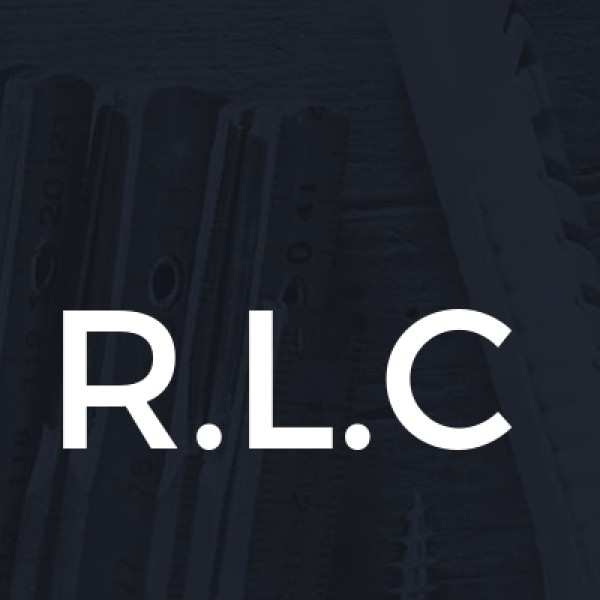Property Refurbishment in Kidderminster
Filter your search
Post your job FREE and let trades come to you
Save time by filling out our simple job post form today and your job will be sent to trades in your area so you can sit back, relax and wait for available trades to contact you.
Post your job FREESearch Property Refurbishment in places nearby
Understanding Property Refurbishment in Kidderminster
Property refurbishment in Kidderminster is an exciting venture that can transform an old or outdated space into a modern, functional, and aesthetically pleasing environment. Whether you're a homeowner looking to update your living space or an investor aiming to increase the value of a property, refurbishment offers numerous benefits. This article will explore various aspects of property refurbishment, providing insights and guidance to ensure a successful project.
The Importance of Property Refurbishment
Refurbishing a property is more than just a cosmetic upgrade; it's about enhancing the overall quality and value of a home. In Kidderminster, where the property market is competitive, refurbishment can make a significant difference. It can improve energy efficiency, increase market value, and provide a more comfortable living environment. Moreover, a well-refurbished property can attract potential buyers or tenants, making it a wise investment.
Planning Your Refurbishment Project
Before diving into a refurbishment project, careful planning is crucial. Start by assessing the current condition of the property and identifying areas that need improvement. Create a detailed plan that outlines the scope of work, budget, and timeline. It's also essential to consider any necessary permits or approvals, especially if structural changes are involved. Engaging with professionals, such as architects or interior designers, can provide valuable insights and help streamline the process.
Setting a Realistic Budget
One of the most critical aspects of any refurbishment project is setting a realistic budget. Consider all potential costs, including materials, labour, and unexpected expenses. It's advisable to allocate a contingency fund for unforeseen issues that may arise during the refurbishment. By having a clear budget, you can make informed decisions and avoid overspending.
Choosing the Right Professionals
Hiring the right professionals can make or break your refurbishment project. In Kidderminster, there are numerous skilled tradespeople and contractors available. Take the time to research and select individuals or companies with a proven track record and positive reviews. Request quotes from multiple sources to ensure you're getting a fair price. Remember, the cheapest option isn't always the best; quality workmanship is paramount.
Key Areas to Focus On
When refurbishing a property, certain areas often require more attention than others. Kitchens and bathrooms, for instance, are high-impact spaces that can significantly influence a property's value. Updating these areas with modern fixtures, efficient layouts, and quality materials can yield a high return on investment. Additionally, consider the property's exterior, as curb appeal plays a vital role in attracting buyers or tenants.
Enhancing Energy Efficiency
In today's environmentally conscious world, energy efficiency is a top priority for many homeowners and buyers. Incorporating energy-efficient solutions into your refurbishment can reduce utility bills and increase the property's appeal. Consider installing double-glazed windows, upgrading insulation, and using energy-efficient appliances. These improvements not only benefit the environment but also enhance the property's marketability.
Maximising Space and Functionality
Maximising space and functionality is essential in any refurbishment project. Open-plan designs are popular as they create a sense of spaciousness and allow for flexible living arrangements. Consider removing non-load-bearing walls to open up the space or adding storage solutions to make the most of available areas. Thoughtful design can transform even the smallest properties into comfortable and functional homes.
Incorporating Modern Design Trends
Staying up-to-date with modern design trends can give your refurbished property a contemporary edge. In Kidderminster, popular trends include minimalist designs, neutral colour palettes, and sustainable materials. Incorporating these elements can create a timeless look that appeals to a wide range of potential buyers or tenants. However, it's essential to balance trends with personal taste to ensure the space feels inviting and comfortable.
Using Quality Materials
Quality materials are the backbone of any successful refurbishment project. While it may be tempting to cut costs by opting for cheaper alternatives, investing in high-quality materials can pay off in the long run. Durable materials not only enhance the property's appearance but also reduce maintenance costs and increase longevity. Consider materials that are both aesthetically pleasing and practical for everyday use.
Adding Smart Home Features
Smart home technology is becoming increasingly popular, and incorporating these features into your refurbishment can set your property apart. Consider installing smart thermostats, lighting systems, and security features. These additions can enhance convenience, improve energy efficiency, and increase the property's value. As technology continues to evolve, staying ahead of the curve can make your property more attractive to tech-savvy buyers.
Legal Considerations and Compliance
When undertaking a refurbishment project in Kidderminster, it's essential to be aware of legal considerations and compliance requirements. Depending on the scope of work, you may need planning permission or building regulations approval. Ensure that all work complies with local regulations and standards to avoid potential legal issues. Consulting with professionals or local authorities can provide clarity and ensure your project runs smoothly.
Understanding Building Regulations
Building regulations are in place to ensure safety, health, and energy efficiency in construction projects. Familiarise yourself with the relevant regulations for your refurbishment project, as non-compliance can result in fines or legal action. Key areas to consider include structural integrity, fire safety, and accessibility. Working with experienced professionals can help navigate these requirements and ensure compliance.
Obtaining Necessary Permits
Depending on the nature of your refurbishment, you may need to obtain permits from local authorities. This is particularly important for projects involving structural changes, extensions, or changes to listed buildings. Failing to secure the necessary permits can lead to delays, fines, or even the reversal of completed work. It's advisable to consult with professionals or local authorities early in the planning process to determine what permits are required.
Managing the Refurbishment Process
Managing a refurbishment project requires careful coordination and communication. Establish a clear timeline and schedule regular check-ins with contractors and tradespeople to ensure the project stays on track. Be prepared for potential challenges or delays, and maintain open lines of communication to address any issues promptly. Effective project management can minimise stress and ensure a successful outcome.
Overseeing Quality Control
Quality control is a critical aspect of any refurbishment project. Regularly inspect the work being done to ensure it meets your standards and specifications. Address any concerns or discrepancies with contractors promptly to avoid costly rework. Maintaining high standards throughout the project will result in a finished product that meets your expectations and enhances the property's value.
Handling Unexpected Challenges
Refurbishment projects often come with unexpected challenges, such as hidden structural issues or supply chain delays. Being prepared to adapt and find solutions is essential. Maintain a flexible mindset and work closely with your team to address any problems that arise. Having a contingency plan and budget can help mitigate the impact of unforeseen challenges and keep the project on track.
Evaluating the Success of Your Refurbishment
Once the refurbishment is complete, take the time to evaluate the success of the project. Assess whether the work met your initial goals and expectations. Consider the property's increased value, improved functionality, and overall aesthetic appeal. Gathering feedback from potential buyers or tenants can also provide valuable insights into the project's success and areas for improvement in future endeavours.
Measuring Return on Investment
One of the primary goals of property refurbishment is to increase the property's value and achieve a return on investment. Evaluate the financial impact of the refurbishment by comparing the property's value before and after the project. Consider factors such as increased marketability, rental income potential, and energy savings. A successful refurbishment should yield a positive return on investment, making it a worthwhile endeavour.
Reflecting on Lessons Learned
Every refurbishment project offers valuable lessons and insights. Reflect on what went well and what could have been improved. Consider the effectiveness of your planning, budgeting, and project management strategies. Use these reflections to inform future projects and enhance your skills and knowledge in property refurbishment. Continuous learning and improvement are key to achieving success in any refurbishment endeavour.
Frequently Asked Questions
- What is the average cost of property refurbishment in Kidderminster? The cost can vary widely depending on the scope of work, materials used, and the size of the property. It's essential to obtain detailed quotes from contractors to get an accurate estimate.
- Do I need planning permission for a refurbishment project? It depends on the nature of the work. Structural changes, extensions, or work on listed buildings may require planning permission. Consult with local authorities to determine the requirements for your project.
- How long does a typical refurbishment project take? The timeline can vary based on the project's complexity and size. On average, a full refurbishment can take several weeks to a few months. Establishing a clear timeline with your contractors can help manage expectations.
- Can refurbishment increase the value of my property? Yes, a well-executed refurbishment can significantly increase a property's value by improving its functionality, energy efficiency, and aesthetic appeal.
- What are some common challenges in refurbishment projects? Common challenges include unexpected structural issues, supply chain delays, and budget overruns. Effective planning and project management can help mitigate these challenges.
- How can I ensure quality workmanship in my refurbishment project? Hiring reputable professionals with a proven track record is crucial. Regularly inspect the work and maintain open communication with your contractors to ensure high-quality results.










![Elmwood Joinery [Malvern] Ltd logo](https://www.bookabuilderuk.com/images/user/profile-image/UU-53ae6353bbb1793d-801205-1706694585.png)


















